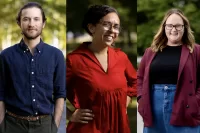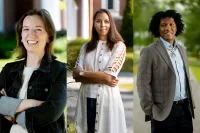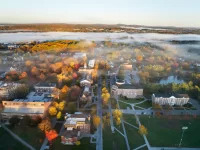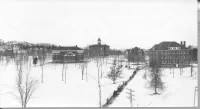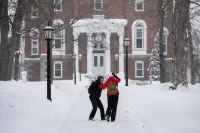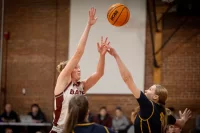
Bates is welcoming a large group of new faculty this year. Seventeen tenured or tenure-track professors will join the college in the course of the 2025-2026 academic year. Bates News is introducing them in groups over this semester. Last week’s installment was the first.
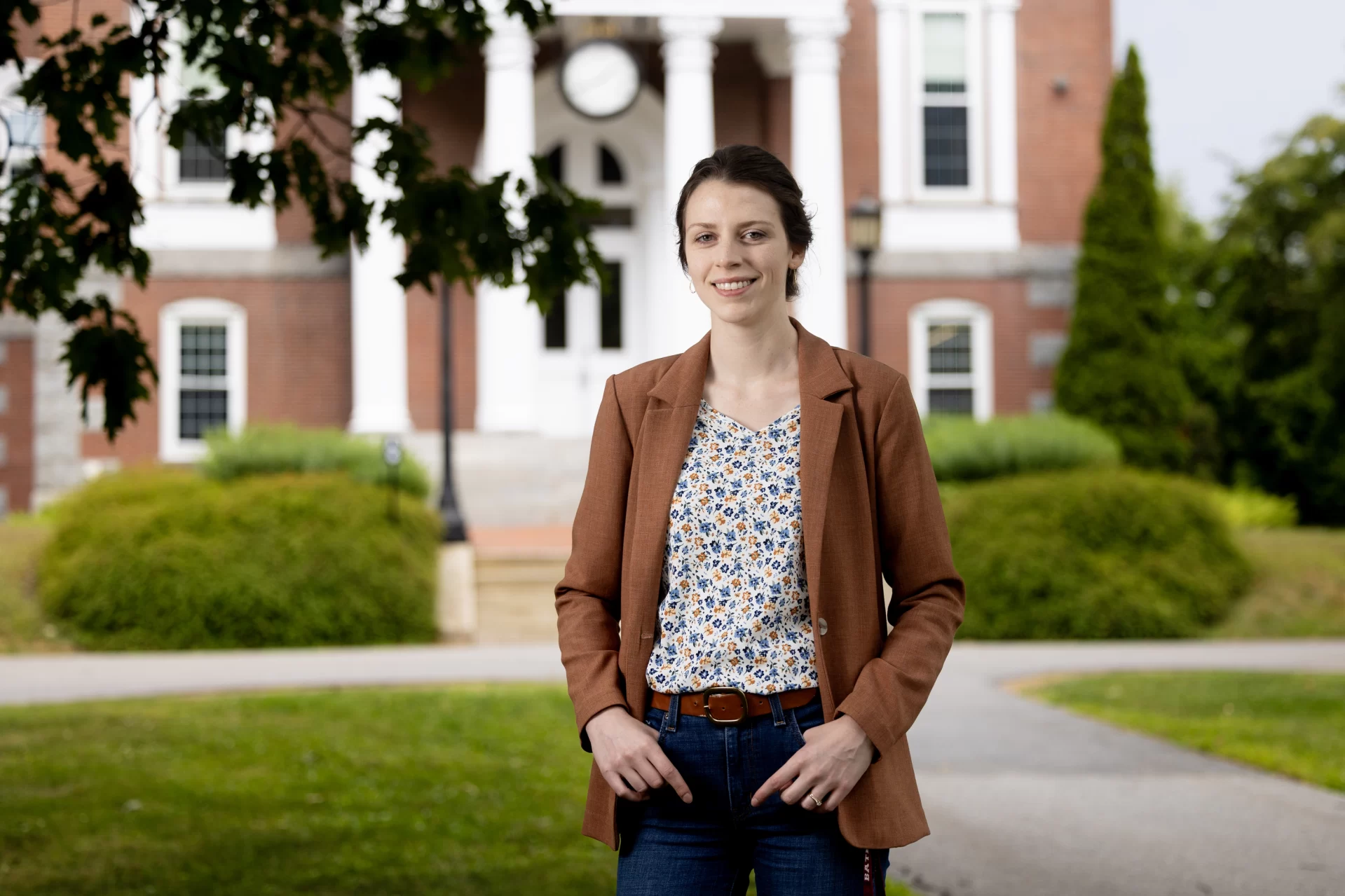
Sarah Conley, assistant professor of physics and astronomy
Focus of teaching and scholarship:
My research is on energy transport in the Sun-Earth system. In particular, I run high-performance computer simulations to study the exchange of energy between particles and electromagnetic fields in what’s called the solar wind: a very low-density, yet constant and dynamic flow of particles that come from the Sun and spread through the solar system.
Big-picture questions in this field include, “Why is the solar corona so much hotter than the surface of the Sun?”, “What causes particles in the solar wind to heat up?”, and “How does space weather — which is created by energetic events on the Sun like solar flares, or coronal mass ejections — impact the Earth?” I am excited to explore topics including the Sun, space weather, and space plasma physics in future classes
What are you most looking forward to in the coming year at Bates?
Getting to know the campus community, and attending concerts and performances at Bates.
What is your favorite part of teaching?
Watching students become confident in their understanding of topics that are new or challenging, and playing a role in facilitating that process.
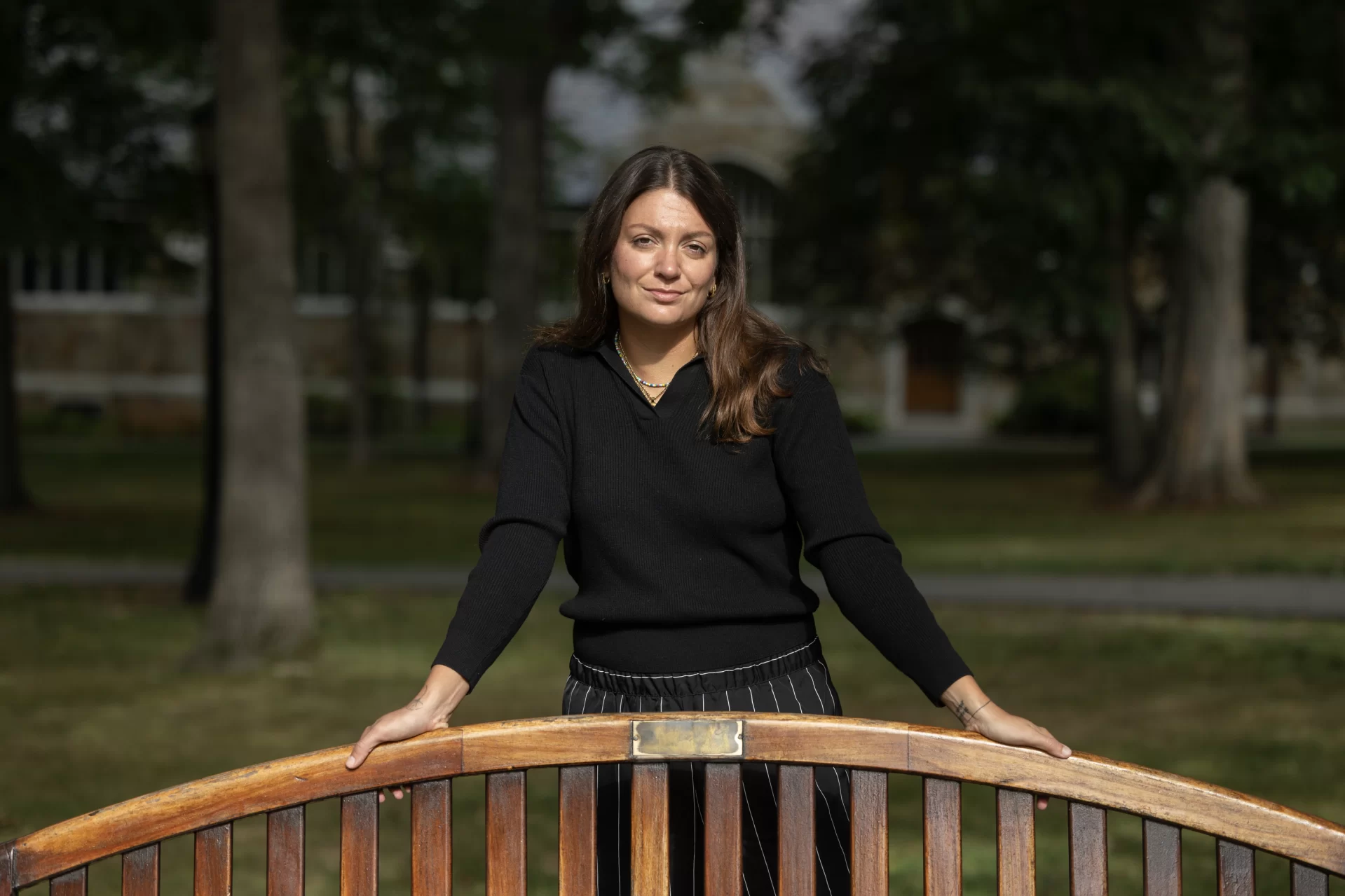
Emma Ianni, assistant professor of classical and medieval studies
Focus of teaching and scholarship:
I am a scholar of ancient Greek literature and history. My research focuses on the relationship between tragedy and historiography in classical Athens, with an emphasis on the intersection of gender, democracy, and war. My interests also include reception and public humanities. In both my teaching and research, I explore the (dis)continuities between antiquity and modernity in order to propose inclusive and original engagements with the ancient world.
What are you most looking forward to in the coming year at Bates?
Seeing how becoming part of the Bates community will allow me to take my teaching and scholarship in new, creative, and interdisciplinary directions. I admire the intellectual synergy and spirit of collaboration I’ve seen around me during the past few weeks, and I am excited to be part of such an environment.
What is your favorite part of teaching?
I love seeing students engage with new materials in their own personalized ways — when they are able to connect the class to their own interests and passions, they bring a contagious enthusiasm to the classroom. I teach ancient Greek and Latin, and I really enjoy facilitating new connections to such old languages; looking at the classical past through my students’ personal investments has helped me to think about it in original, inclusive, and exciting ways.
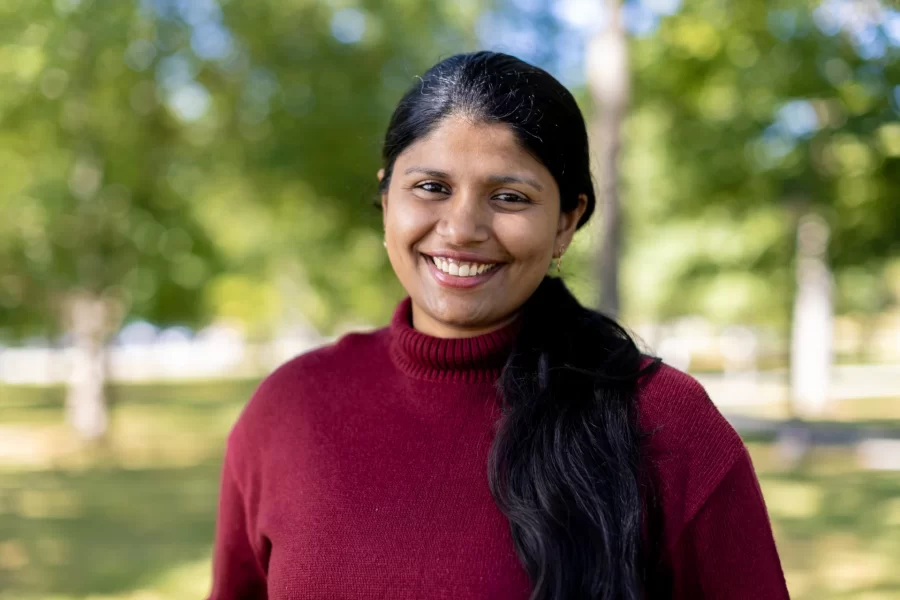
Cigole Thomas, assistant professor of mathematics
Focus of teaching and scholarship:
My research lies in a field of mathematics called algebraic geometry, where we use algebra to explore and understand geometric shapes. These shapes, known as varieties, are formed by points where a group of equations are all equal to zero simultaneously. I am especially interested in how numbers “move” when an action is applied to mix them. I study the patterns that emerge, called orbits. My research is motivated by the way different branches of mathematics come together, combining their tools to solve questions that would otherwise be difficult to address.
Another aspect of my work involves exploring ways to improve how mathematics is taught and to better understand how students learn mathematical concepts. I look forward to sharing what I find beautiful in mathematics through teaching.
What are you most looking forward to in the coming year at Bates?
Getting to know my students and colleagues and the journeys they have traveled. I look forward to being a small part of their journeys, if only for a while, hopefully to help make their journey at Bates a little brighter, a little deeper, and all the more worthwhile.
What is your favorite part of teaching?
What I cherish most in teaching are the quiet transformations, those moments when something learned in class begins to ripple beyond the limits of a single semester. Sometimes you can see it in a moment of understanding, an “aha” that lights up a student’s face — other times, in a passing remark: “Math isn’t as hard as I thought.” It’s often these gentle reshapings of a student’s relationship with math that are the most rewarding moments of teaching for me.
Faculty Featured

Sarah A. Conley
Assistant Professor of Physics

Emma Ianni
Assistant Professor of Classical and Medieval Studies
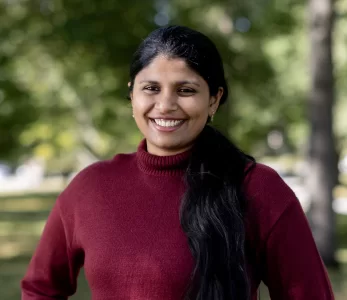
Cigole Thomas
Assistant Professor of Mathematics
